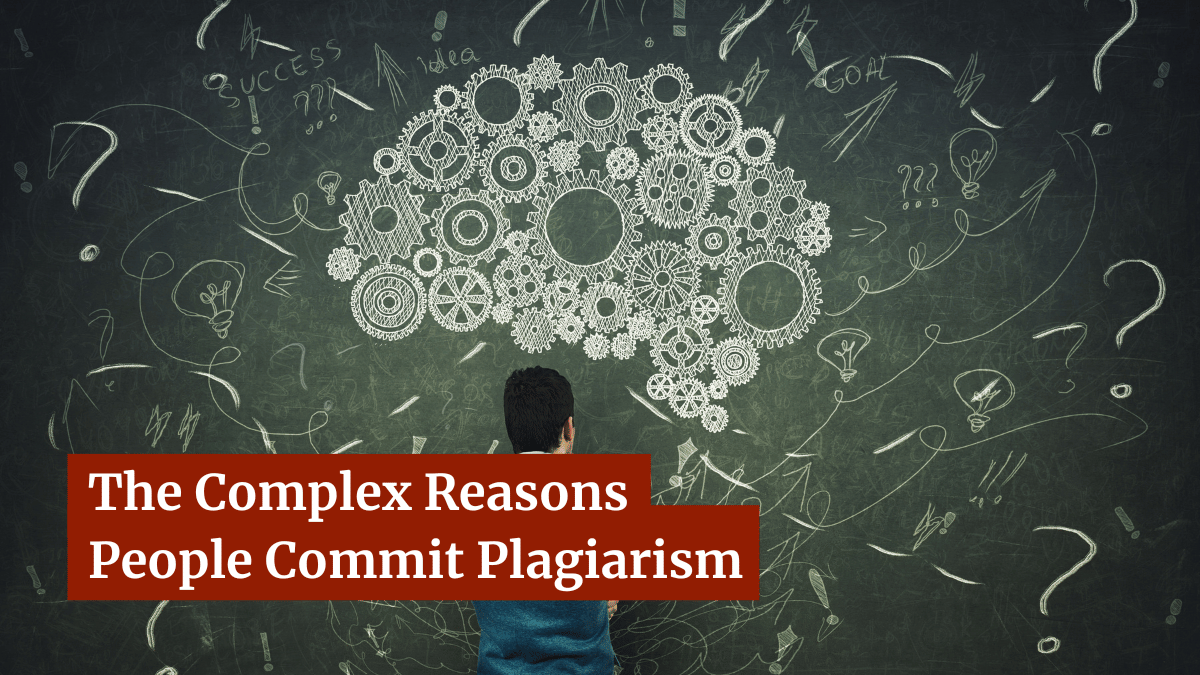Why Do People Publicly Plagiarize?

Yesterday, I was invited along with other guests to speak on the Australian Broadcasting Company’s (ABC) morning show Life Matters with Hilary Harper. The episode looked at the issue of how plagiarism is changing and why people plagiarize, in particular why they do so in a public setting.
To that end, I was joined by Sarah L’Estrange, a presenter on The Book Show series Fakes and Frauds, and Dr. Guy Curtis, a Senior Lecturer in Applied Psychology at the University of Western Australia.
L’Estrange, for her part, has been highlighting a slew of different literary frauds, including the John Hughes plagiarism scandal from last year. Dr. Curtis, on the other hand, provided great insight into why people commit anti-social behavior, such as plagiarizing in a public setting.
The conversation is interesting and well worth a listen. However, two things in particular were gleaned, at least for me.
Among many of these kinds of plagiarists, there was a general sense of entitlement. Plagiarists felt that they had some right to do so or that their unattributed was somehow justified. Going back to John Hughes, this was something that we saw in spades as he tried to compare himself to luminaries such as Bob Dylan and T.S. Eliot.
According to Dr. Curtis, this likely stems from the fact that many plagiarists likely gave themselves some sort of justification for their actions. Whether it was saying that the system was unfair to authors like them or that they were just doing what others do, they found a way they could tell themselves that what they were doing wasn’t wrong.
That, in turn, explains why so many plagiarists turn hostile when they are discovered, often firing back at their accusers and the public with threats and vitriol.
However, that does lead to the second lesson, that no two plagiarists are the same nor do they do it for the same reasons. According to Dr. Curtis, negative behaviors like plagiarism, stem from a complicated interplay between “malevolent” personality traits. As such, it is easy for two people to commit roughly the same infraction for very different psychological reasons.
This makes it difficult to predict who is or is not likely to commit plagiarism, and it makes it difficult to predict how they will react when caught. Furthermore, it’s also true that those who are caught don’t have enough insight into their reasons to actually offer an explanation, which is something I’ve hit on before.
To be clear, this conversation was about a very narrow type of plagiarism, namely plagiarism in the public sphere. The lessons and topics discussed may not be very relevant when dealing with plagiarism in a private setting, such as in the classroom or in the workplace.
Still, I enjoyed the conversation and was honored to be a part of it. For me personally, it’s reintroduced me to the complicated issues of psychology and plagiarism, and I definitely have some topics I want to address in the weeks to come.
If you’re interested in this space, I cannot encourage you enough to listen to the conversation. It’s great stuff, and I think that there were plenty of good takeaways from it.
Want to Reuse or Republish this Content?
If you want to feature this article in your site, classroom or elsewhere, just let us know! We usually grant permission within 24 hours.
